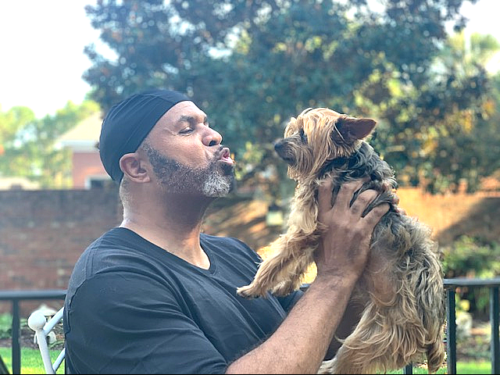You’ve decided to own a dog for the first time. What a great move because, according to various studies, owning a pet relieves stress, lowers blood pressure and cholesterol levels, and helps to improve mental health. Not only do pets help older adults overcome various health ailments, but also they can significantly decrease their owners’ sense of loneliness.
It is always best to prepare for the arrival of your pooch ahead of time. Here are eight things first-time dog owners can do to make their transition easier.
Food: You will need to feed your dog but first find out about their diet and then determine if you want to switch it. Check with a vet to learn about dog food brands that offer the nutrition your breed will need to stay healthy. Keep in mind, the nutritional needs of dogs will vary as they age.
Sleeping spot: Set up a cozy spot for your dog; a space they can call their own! The experts recommend starting your dog with a confined space like a dog crate because it makes them feel safe. Add a dog bed so that they can get some good shut-eye. The space should be just big enough to stand, lie down, and turn around comfortably.
Housetraining: Dogs don’t understand that your home is a “no-potty” zone. Instead of giving them lots of space to have accidents, assume your dog is not house-trained and confine them in a dog crate, an exercise pen, or a small gated area when you are not around to supervise. When you’re home, take your dog out of their space frequently, and reward them with a dog treat when they potty outside. Use dog potty pads in your dog’s confined space so that they can have a place to go potty when you aren’t around to take them out.
Limit roaming space: Your dog might want to chew on your good throw pillows, so until Rover is trained, confine him to an area until he learns what he can and can’t play within your home. Gates, dog crates, and ex-pens will come in handy during the training period.
Get a routine going: Puppies need a routine like babies. Once you set a schedule in place for your pet, the faster they will settle in.
Keep your cool: Stay calm even when accidents happen, and your dog will remain controlled as well. Don’t punish your puppy for going potty in the house. If you find a soiled area, it’s too late to administer a correction. Just clean it up. Rubbing your dog’s nose in it, taking them to the spot, and yelling at them or any other punishment will only make them afraid of you or afraid to eliminate in your presence. Punishment will often do more harm than good.
Your dog also may benefit from calming pheromones, like an Adaptil electric diffuser, during this transition. The diffuser is a discreet plug-in to bathe the home in a synthetic copy of the canine-appeasing pheromone. It helps to calm your dog in stressful situations.
Be patient: Keep in mind that you and your dog are getting to learn each other and need time to adjust.
Seek expert help: If your dog has housetraining issues you can’t handle, then turn to a pro. Don’t keep trying to work on an issue you can’t resolve. A certified professional dog trainer or certified dog behavior consultant can intervene and offer solutions so that both you and your dog can enjoy each other to the fullest.











